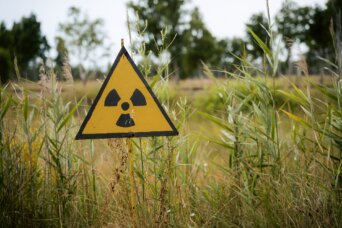- About
- Topics
- Picks
- Audio
- Story
- In-Depth
- Opinion
- News
- Donate
- Signup for our newsletterOur Editors' Best Picks.Send
Read, Debate: Engage.
| topic: | Peace and Reconciliation |
|---|---|
| editor: | Bob Koigi |
With armed conflicts and proliferation of arms reaching worrying proportions in the recent past, troubling instabilities in several regions of the world have induced apprehension about peace from deadly warfare.
From armed wars in Sudan, Yemen, Syria and Iraq to nuclear weapons of mass destruction and cyber-warfare, the continuing arms race has brought with it some of the biggest threats known to mankind.
While there have been concerted efforts at disarmament that continue to foster international peace and security, protect civilians, tackle armed conflicts, build trust and confidence across states and promote sustainable development, there are still pockets of illicit arms trades that continue to threaten global stability.
As the world marks Disarmament Week, a commemorative period that since 1978 has been put in place to create awareness on the dangers associated with weapons of mass destruction and call on the United Nations member states to choose routes of negotiation and peace while putting an end to the use of force in international relations. The rallying call is for the international community to put extra efforts in driving the conversation and action around the dangers of weaponry and why the world should speak in unison when championing for a credible and effective collective security system.
Since the United Nations was formed, arms control and disarmament have been pivotal in preventing and resolving armed conflicts in unstable regions. The world cannot afford to backtrack on the promise of ‘never again’ - which stands threatened with the unprecedented proliferation of arms and cyclic conflicts.
Photo by Kilian Karger

